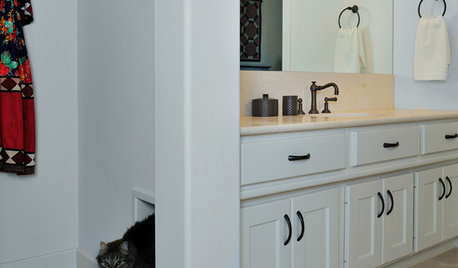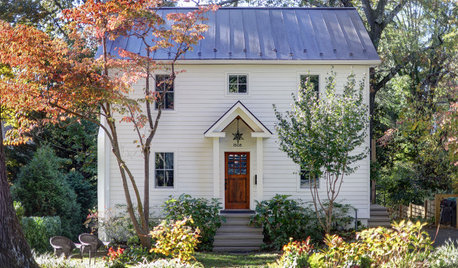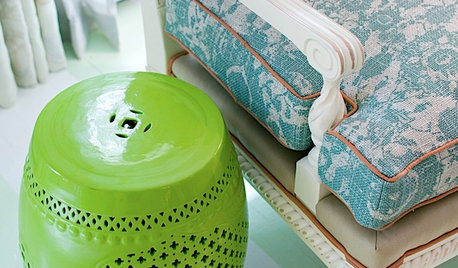ever wish you lived someplace else, so gardening would be easier?
lakedallasmary
16 years ago
Related Stories

LIFE10 Smart Organizing Ideas That Make Life Easier
Rethink where and how you store household basics, from bills to baking supplies, to buy some time and save some headaches
Full Story
MOVINGHow to Make Your Move Easier for Your Family
Say goodbye to a much-loved home and settle in quickly to a new place with these tips for transitioning
Full Story
GARDENING FOR BUTTERFLIES3 Ways Native Plants Make Gardening So Much Better
You probably know about the lower maintenance. But native plants' other benefits go far beyond a little less watering and weeding
Full Story
KITCHEN DESIGNSo Over Stainless in the Kitchen? 14 Reasons to Give In to Color
Colorful kitchen appliances are popular again, and now you've got more choices than ever. Which would you choose?
Full Story
PETSSo You Want to Get a Cat
If you're a cat lover, the joys outweigh any other issue. If you haven't lived with one yet, here are a few things to know
Full Story
FALL GARDENINGMake This Fall’s Garden the Best Ever
Learn the most important tip for preventing buyer’s remorse, plus get more valuable buying and planting advice
Full Story
DECORATING GUIDESThe Most Helpful Furniture Piece You May Ever Own
Use it as a table, a seat, a display space, a footrest ... and indoors or out. Meet the ever-versatile Chinese garden stool
Full Story
DECORATING GUIDESThe Dumbest Decorating Decisions I’ve Ever Made
Caution: Do not try these at home
Full Story
DECORATING GUIDES10 Design Tips Learned From the Worst Advice Ever
If these Houzzers’ tales don’t bolster the courage of your design convictions, nothing will
Full Story
DECORATING GUIDESNo Neutral Ground? Why the Color Camps Are So Opinionated
Can't we all just get along when it comes to color versus neutrals?
Full StorySponsored
Leading Interior Designers in Columbus, Ohio & Ponte Vedra, Florida



gardenlen
ruthieg__tx
Related Discussions
Wishing the garden clock would stop
Q
Do you ever wish you had a facelift instead of a new kitchen?
Q
As you get older do you ever wish.....
Q
Ever wish a neighbors ? would be disposed of
Q
booberry85
organica
lakedallasmaryOriginal Author
countrymile
zeedman Zone 5 Wisconsin
ninjabut
lilacs_of_may
tdscpa
organica
pnbrown
popcornhill
suburbangreen
nc_crn
hemnancy
pnbrown
organica
granite
veggrljo
flora_uk
gonefishin
hamiltongardener
ligardener
lakedallasmaryOriginal Author
belindach
pnbrown
zeedman Zone 5 Wisconsin
pnbrown
greatlakesmower
lakedallasmaryOriginal Author
hamiltongardener
wayne_5 zone 6a Central Indiana
ruthieg__tx
macthayer
nc_crn
nc_crn
flora_uk
lakedallasmaryOriginal Author
nc_crn